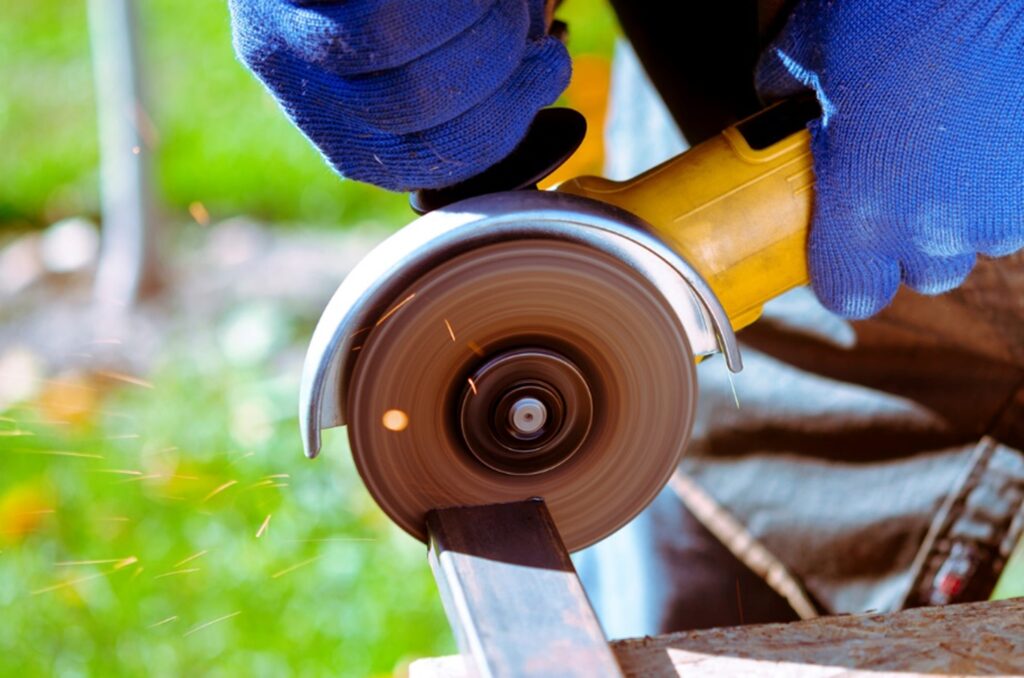
When working with power tools, you must obtain the proper training because, without it, you’re putting yourself at risk of a number of injuries and, in worse cases, death. Of course, this is the case for all electric tools, but today we’re looking specifically into abrasive wheels by helping you understand more about our abrasive wheels training. We’re delving into the different courses we offer here at Boss Training and exploring why you may need to use abrasive wheels and the risks you expose yourself to without the correct training.
Read on to learn more about how you could benefit from abrasive wheels training and what to expect during one of our courses.
What Are Abrasive Wheels?
We explore abrasive wheels to help you better understand whether you would need them in your workplace and what training you would require.
Abrasive wheels are round, wheel-shaped devices with abrasive particles on their outer rim that have been bonded to give them grit-like abrasion. The bonding process can either occur with organic or inorganic substances, depending on the intended use of the abrasive wheel. For example, you would choose organic bonding for handheld abrasive wheels but inorganic bonding, such as resin, for precision applications.

The Dangers of Abrasive Wheels
As with any grinding or cutting tools, many dangers come with using abrasive wheels, especially if the proper health and safety training has not been completed. You could obtain a long list of injuries from using these devices, from minor cuts to fatalities. When you use an abrasive wheel, you open yourself up to several risks, including:
- Sparks. If the space you’re using isn’t well-ventilated, a spark flying could lead to fires or explosions.
- Contact with the wheel. These tools are designed to cut and wear through various materials, including metal, so they can very easily cut through your clothes and skin.
- Flying parts. Injuries to the eye could occur if parts, such as metal, flew through the air and you weren’t wearing protective goggles.
There are also several long-term risks involved with using abrasive wheels, such as:
- Inhaling dust. When dry grinding, you could breathe in dust which could cause lung damage and breathing issues.
- Restricted blood flow. Due to the machine’s vibrations, you could get hand-arm vibration syndrome, leading to restricted blood flow over time.
Because of these risks, it’s essential that the proper training is carried out.
What Is Abrasive Wheel Training?
Abrasive wheel training ensures you are compliant when working with abrasive wheels, so you don’t injure yourself or others or damage the machine. We offer a range of courses here at Boss Training that provide you with everything you need to operate the abrasive wheels safely.

Online Training
During our online training course, we cover the analysis of an abrasive wheel to help you understand the dangers of the machine, how to handle it safely, and so much more. Our online course aims to provide you with the safest possible practices, no matter which application you’re using the abrasive wheel for.
Our online training course is ideal for those who only require theory knowledge of the dangers and safe use of Abrasive Wheels in their workplace and who would prefer to complete a course in their own time. There are 100 minutes of video content included, and it requires you to have an up-to-date browser and a strong internet connection to complete. Book today to begin your training.
Onsite Training
Our onsite training covers the same practices as our online course, for example, the use, mounting, or inspection of abrasive wheels, but is delivered in person at your workplace.
We recommend the onsite training to those operating abrasive wheels as it is easy for trainees to follow the instructions in person and to use their own equipment. Using your company-specific abrasive wheels during training will allow the trainees to become familiar with the machines they will use daily. We can also adapt the course to your machinery so there is no confusion regarding the minor changes in different abrasive wheels.
Alternatively, you can also take advantage of training at our centre. Our training centre course can help minimise the disruption of your workplace, whilst still providing the necessary information and teaching to your staff.

Virtual Classroom
Our virtual classroom courses are no different to the onsite training, except your trainer will be on a screen, not in the same room. You will have the same access to their expertise and have the chance to ask them about your specific machinery during your time with them, so no matter what you want to know, you’ll get the answers to your questions that will allow you to use your abrasive wheels safely.
You will need to make sure you have a solid internet connection and are using an up-to-date browser, as any connections lost can cause huge setbacks and waste both your and our trainers’ time. We also require a working camera and speaker so you and our trainers can see and hear each other clearly.
No matter which of our courses you take, you will end the training with a short multiple-choice exam which you must pass to receive your certificate by the end of the training day. But don’t worry, our team of abrasive wheel experts will be by your side every step of the way to ensure you pass with flying colours.
If this sounds like something your workplace could benefit from, please book a place on our training abrasive wheels training courses by calling 01422 358184 or contacting us at enquiries@bosstraining.co.uk. Additionally, find out more about our safety training services online.